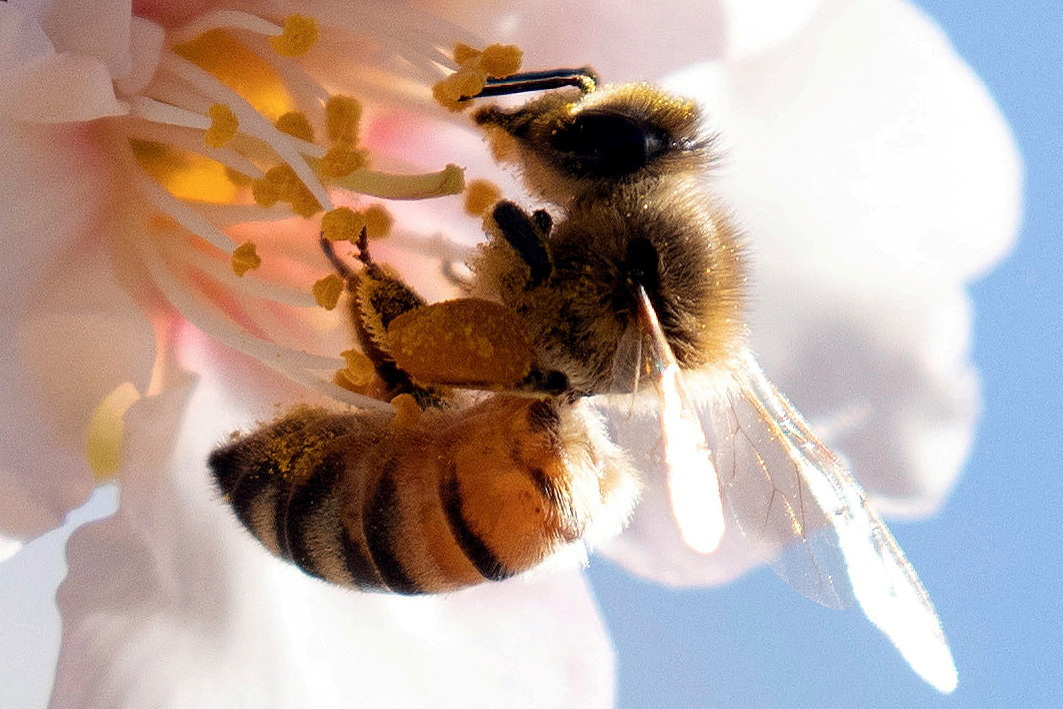
Bethany Roberts, FISM News
[elfsight_social_share_buttons id=”1″]
The U.S. Department of Agriculture (USDA) has approved the use of the world’s first vaccine for honeybees. The vaccine, engineered by Dalan Animal Health (DAH), works to prevent fatalities from American foulbrood disease.
American foulbrood disease is a bacterial condition that weakens bees’ immune systems and their colonies. The disease targets bee larvae, and according to DAH, the only way to stop the spread is to incinerate the hive, bees, and even the tools used for that hive. That was until DAH received a conditional license from the USDA.
The USDA approves conditional licenses for products that “meet an emergency situation, limited market, local situation, or special circumstance” and are pure, safe, and have a “have a reasonable expectation of efficacy,” according to a memo on steps for licensure. In this case, a honeybee vaccine.
The vaccine works by feeding the colony’s queen inactive, whole-cell bacteria that causes foulbrood disease. Some of the vaccines remain in her ovaries and enable the larvae that hatch in the hive to resist infection.
“We are committed to providing innovative solutions to protect our pollinators and promote sustainable agriculture. Global population growth and changing climates will increase the importance of honeybee pollination to secure our food supply,” said Dr. Annette Kleiser, CEO of Dalan Animal Health. “Our vaccine is a breakthrough in protecting honeybees. We are ready to change how we care for insects, impacting food production on a global scale.”
According to DAH, which specializes in insect health and immunology, the experimental tests show no negative impact on honey and show that immune priming had no negative impact on the queen’s health or fitness. The vaccine is also chemical-free, non-GMO, and organic, according to DAH, which means it can be used in organic agriculture.
“If we can prevent an infection in our hives, we can avoid costly treatments and focus our energy on other important elements of keeping our bees healthy,” California State Beekeepers Association board member Trevor Tauzer said in a statement.
The vaccine comes at a critical time. Since 2006, the U.S. has seen reductions in honeybee colonies annually, according to the USDA. Many factors contribute to the decline in honeybee populations. According to the USDA, these factors include parasites, disease, Colony Collapse Disorder, and sometimes they overlap.
According to a survey by the Bee Informed Partnership, U.S. beekeepers lost almost 40% of their colonies in the winter of 2019.
One-third of the global food supply relies on pollination, and honeybees are one of the primary pollinators. Healthy commercial hives are a crucial part of securing high crop yields. Before this vaccine, there were no solutions to American foulbrood disease, one of the leading causes of the honeybee population decline.
Dalan Animal Health plans to “distribute the vaccine on a limited basis to commercial beekeepers and anticipates having the vaccine available for purchase in the United States in 2023.”
‘WHAT COULD GO WRONG???’
The vaccine is causing alarm amongst skeptics, however.
With the efficacy and safety of COVID-19 vaccines clearly not what Big Pharma, Big Government, and mainstream media claimed they were, many people are wary of a new, relatively untested vaccine going into honeybees, a vital participant in the growth of a huge portion of our food supply.
Some people believe it may be another part of the World Economic Forum’s Great Reset and depopulation agendas.
https://twitter.com/WallStreetSilv/status/1611837580110188544
